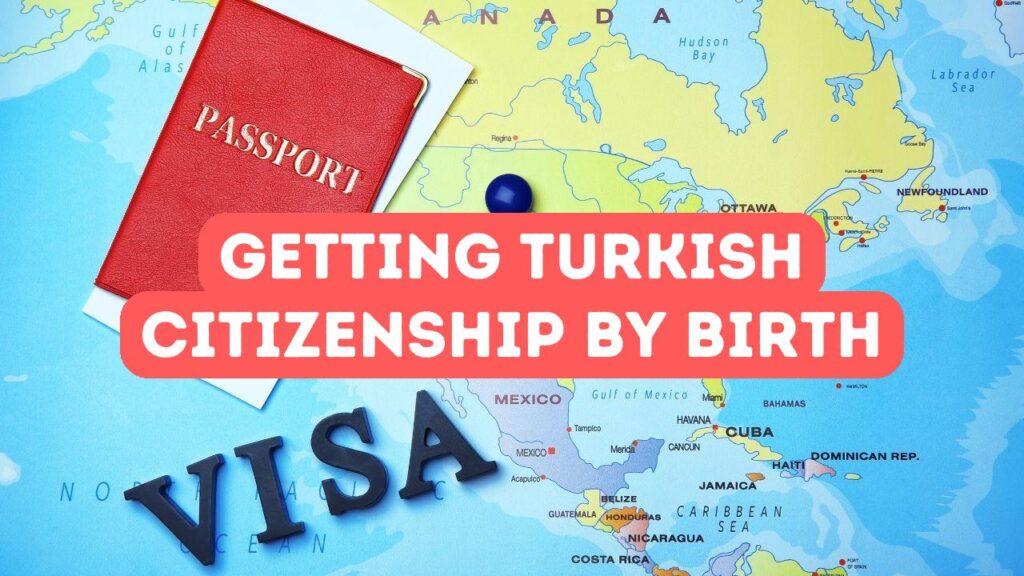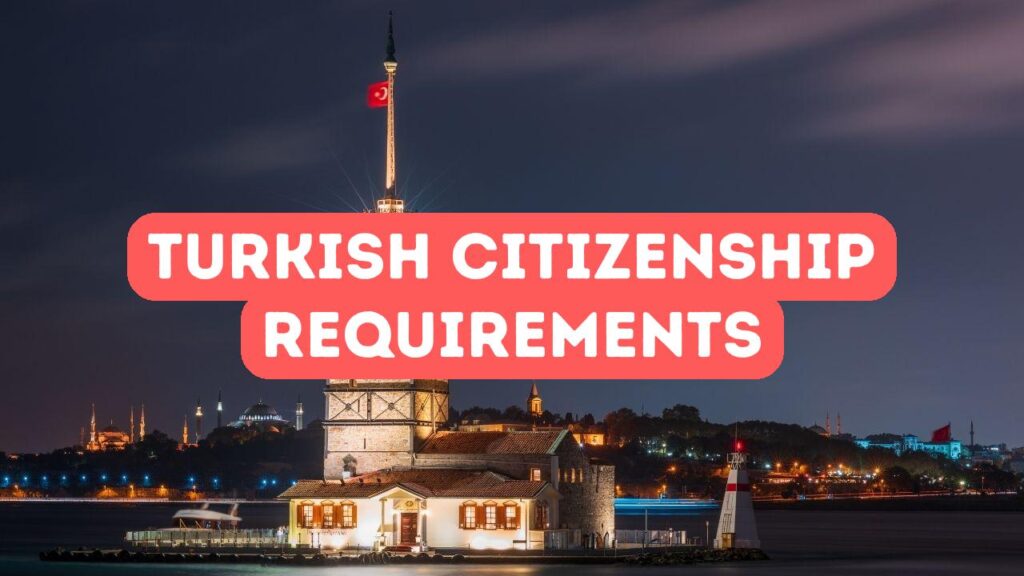Gordion Partners is dedicated to providing comprehensive guidance in the realm of investment and immigration. One of the most seamless paths to Turkish citizenship is by birth, a subject of paramount importance for individuals with connections to Turkey or those considering expanding their family’s legacy in this vibrant country. Turkish citizenship by birth provides a straightforward avenue, enshrining a lineage that benefits from Turkey’s rich cultural heritage, strategic geographical location, and burgeoning economic landscape. In this blog post, we will delve into the legal framework, eligibility criteria, and procedural intricacies involved in securing Turkish citizenship through birth, ensuring that you are well-equipped with the necessary knowledge to navigate this significant aspect of Turkish nationality law.
Understanding Turkish Citizenship Laws by Birth
Turkish citizenship laws by birth are governed by the principle of jus sanguinis, which means “right of blood.” This legal doctrine stipulates that citizenship is not determined by the birthplace but by having at least one parent who is a Turkish citizen at the time of the child’s birth. If a child is born abroad to Turkish parents, they are automatically entitled to Turkish citizenship, reflecting the country’s emphasis on maintaining familial and cultural ties. This citizenship transmission can occur regardless of the child’s place of birth, ensuring that the lineage and connection to Turkey are preserved across generations.
In addition to the jus sanguinis principle, Turkey also recognizes the right to citizenship for children born within its territory under specific circumstances. According to Turkish law, a child born in Turkey to foreign parents can acquire Turkish citizenship if the child would otherwise be stateless. This provision prevents statelessness and ensures that every child has a nationality. Moreover, Turkey grants citizenship to foundlings—children who are found within the country’s borders and whose parents are unknown. This inclusive legal framework highlights Turkey’s commitment to protecting the rights of children and ensuring their legal ties to the state, reflecting a humane and comprehensive approach to nationality issues.
To further streamline the process of acquiring Turkish citizenship by birth, it is essential for parents to register the birth of their child with the relevant Turkish authorities, either within Turkey or through Turkish consulates if the birth occurs abroad. This registration process is a critical step that officially documents the child’s citizenship status and provides them with a National ID number, a vital credential for accessing various rights and services within Turkey. Parents must present requisite documents such as birth certificates, proof of Turkish citizenship, and valid identification. Once these formalities are completed, the child is recognized as a Turkish citizen, granting them full legal rights and privileges. This procedural transparency underlines the commitment of Turkish authorities to uphold the principle of jus sanguinis while ensuring that all necessary administrative protocols are meticulously followed.
Criteria and Conditions for Obtaining Turkish Citizenship by Birth
Under Article 66 of the Turkish Constitution, individuals are granted Turkish citizenship by birth if they meet certain conditions. Primarily, any person born to at least one Turkish parent is automatically considered a Turkish citizen, regardless of the place of birth. This principle of jus sanguinis ensures the transmission of nationality through lineage, offering a straightforward path for children born to Turkish parents abroad. Moreover, Turkey also recognizes citizenship through jus soli under specific circumstances, such as when a child is born in Turkey to non-Turkish parents who are unable to confer any nationality to the child, thus preventing statelessness. These foundational criteria underscore the inclusive and accommodating nature of Turkish citizenship laws, facilitating a seamless process for those eligible by birth.
To ensure eligibility for Turkish citizenship by birth, it is essential to provide documentary evidence verifying the Turkish nationality of at least one parent or the circumstances of birth on Turkish soil. Birth certificates, parental identification, and civil registration records play a pivotal role in substantiating claims of citizenship. The Turkish authorities mandate a thorough vetting process to validate these critical documents to prevent fraud and ensure compliance with national laws. Additionally, parents must register the birth with the Turkish authorities promptly to secure citizenship status for their child without complications. This meticulous documentation process affirms the commitment of the Turkish government to uphold the integrity of its citizenship laws while providing an inclusive framework for qualifying individuals.
It is also worth noting that the benefits of securing Turkish citizenship by birth extend beyond legal status, integrating individuals into Turkey’s dynamic social, cultural, and economic spheres. Citizens gain access to public services such as healthcare and education, alongside the privilege of participating in Turkey’s thriving democratic processes. Furthermore, Turkish citizens by birth can enjoy the privilege of visa-free or visa-on-arrival travel to numerous countries, enhancing their global mobility. For families considering this path, understanding and meeting the criteria and procedural stipulations is a valuable investment in their future, ensuring they can fully leverage the rights and opportunities that come with Turkish citizenship. At Gordion Partners, we are committed to guiding you through each step, ensuring that your journey towards securing Turkish citizenship by birth is seamless and well-informed.
Legal Processes and Documentation for Turkish Birthright Citizenship
The legal processes for obtaining Turkish citizenship by birth are clearly defined and efficiently structured under Turkish nationality law. A child automatically acquires Turkish citizenship at birth if born to at least one parent who is a Turkish citizen, regardless of the child’s place of birth. This principle of jus sanguinis, or right of blood, underscores the importance of lineage in Turkish citizenship law. To initiate the process, parents must register the birth with the Turkish civil registry through local civil registration offices (Nüfus Müdürlükleri) or Turkish embassies abroad. Accompanying documentation, including the child’s birth certificate and proof of the parents’ Turkish citizenship, must be submitted to facilitate accurate and timely processing.
Upon submitting the necessary initial documentation, parents will receive a registration confirmation from the local civil registration office or the Turkish embassy. This initial step is crucial as it forms the foundation for all subsequent formalities. Following registration, a Turkish identity number (T.C. Kimlik Numarasi) is issued to the child, serving as a unique identifier within the national system. Additionally, parents may apply for a Turkish passport for their child, further cementing their official status as Turkish citizens. Throughout this process, attention to detail is paramount, ensuring all forms and supporting documents are accurately completed and submitted to avoid delays or legal complications. Timely compliance with all procedural requirements not only safeguards the child’s rights as a Turkish citizen but also facilitates seamless access to the privileges and benefits associated with Turkish nationality.
Beyond the initial registration and issuance of a Turkish identity number, it is essential for parents to maintain regular updates with the civil registry, especially in cases of changes in personal information such as address or legal guardianship. Ensuring that all records remain current is critical to averting potential legal issues in the future. Moreover, if the child resides outside Turkey, periodic visits to a Turkish embassy or consulate may be necessary for documentation updates or renewals of passports. Gordion Partners offers personalized assistance to navigate these ongoing requirements, providing legal expertise and logistical support to ensure your child enjoys uninterrupted benefits of Turkish citizenship. Through meticulous adherence to all legal processes and timely updates, your family can fully integrate into the Turkish national framework, thereby enhancing your child’s opportunities and security within the country.






